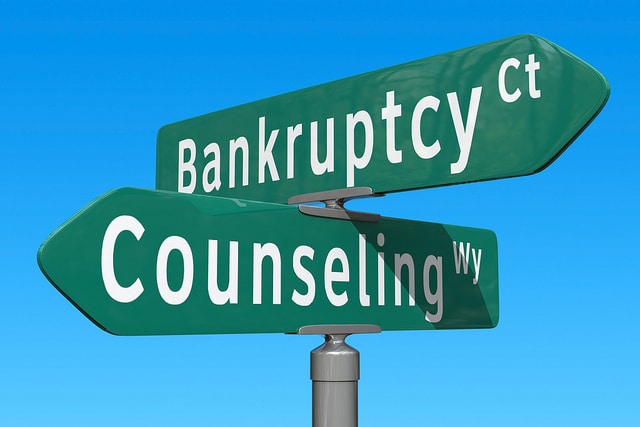Bankruptcy is the federal legal process by which consumers and business entities can effectively eliminate all or a part of their pending debts during personal or financial hardships. There are different ways a person or business files for bankruptcy under the U.S. Bankruptcy Code: liquidation (Chapter 7 bankruptcy) and reorganization (Chapter 13 bankruptcy).

Chapter 7
Chapter 7 is a liquidation bankruptcy intended to eliminate your general unsecured debts. For example, credit cards and hospital bills could be eliminated when you file for Chapter 7 bankruptcy. To fit the bill for Chapter 7 bankruptcy, you must have very limited disposable income (decided by the Florida Means test), or in other words practically zero extra cash. On the off chance that you do have extra money, you may be obligated to file for a Chapter 13 bankruptcy instead. Currently the maximum annual income allowed for the purpose of the Florida means test is $41,334 for a one-person household, $51,839 for two, $63,196 for four, and up to $111,796 for a family of ten.
After you petition for a Chapter 7 bankruptcy, a trustee is selected by the bankruptcy court to manage your case. Apart from assessing your bankruptcy papers and supporting records, his duty is to sell off your non-exempt property in order to pay back your creditors. Due to the fact that absence of non-exempt resources means non-repayment to creditors, Chapter 7 bankruptcy is ordinarily for low-income debtors with limited assets who just need to dispose of their unsecured debts. In case you wish to retain some secured debts like your car or house, you will need to reaffirm the debts by voluntarily signing a “Reaffirmation Agreement” and will have to continue to pay for it for the coming eight years, in the manner in which it was payable before filing for bankruptcy.
Nevertheless, it has to be kept in mind that although bankruptcy can remove a good many number of debts like credit card debts, hospital expenses, and unsecured loans, there are a few other types of debts, including child/spousal support obligations, student loans and tax debts, which cannot be eliminated in Chapter 7 bankruptcy.
Chapter 13
Chapter 13, on the other hand, is a reorganization bankruptcy intended for debtors with standard salary who can pay back a significant part of their debts through a repayment arrangement. If you happen to over-qualify for the annual income limit as given under the Florida Means Test guidelines, you shall be compelled to file for a Chapter 13 bankruptcy case instead of Chapter 7.
However, many debtors voluntarily choose to file for Chapter 13 bankruptcy in light of the fact that it offers numerous advantages that Chapter 7 bankruptcy does not. The basic idea behind a Chapter 13 bankruptcy is that you get the opportunity to keep certain property in exchange for a settlement to pay back your debts in a 3-5 year repayment plan depending upon your future income – which is why Chapter 13 is commonly referred to as a reorganization bankruptcy. Most insurances and retirement plans also remain protected under this type of bankruptcy filing.
Speak to Experienced Florida Bankruptcy Lawyers Today
Hoffman, Larin & Agnetti, P.A. is prepared to help you with any bankruptcy-related needs in Florida. For a free consultation with one of our bankruptcy professionals, reach out to us today. We are happy to help.
